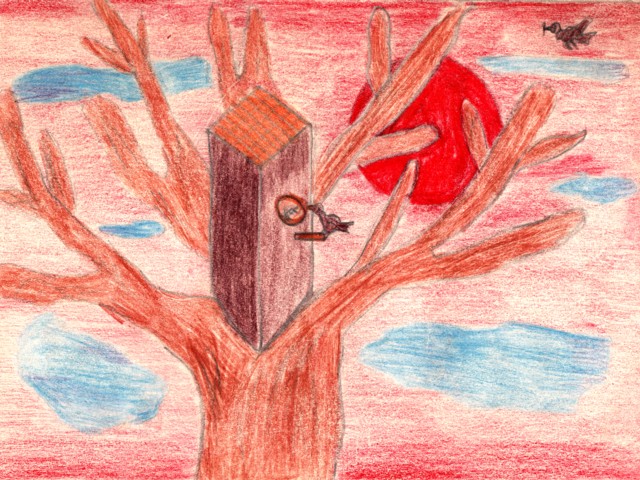Žanras/genre: song
Inst.: voice-pf
lyrics Rimantas Klusas
perform. ans. „Aitvarai”, 1973 / Stanislovas Rubinovas, 1978
Kiekvienas, net ir nedidelis kūrinėlis turi savo istoriją. Ne išimtis ir daina „Saugokim gamtą“. Gimė ji 1973 metais perskaičius Rimanto Kluso eilėraštį „Keturios mirtys ir pavasaris“. Tuo metu Kaune kasmet vyko estradinės muzikos konkursas „Gintarinė triūba“, kurio komisijos darbe dalyvaudavau kaip kompozitorius. Tai buvo puiki proga eksperimentuoti ir po-muzikos srityje. Vienai iš šio renginio nekonkursinių programų sukūriau dainų ciklą „Gėlių dainos“ (eilės Kazio Binkio), kurį atliko berniukų choras „Varpelis“ ir big-bito ansamblis „Gintarėliai“. Premjera įvyko Kauno sporto halėje. Publika sutiko nuoširdžiomis ovacijomis, gi komisijos nariai ir miesto valdžios pareigūnai buvo visiškai pasimetę – ciklo pavadinimas jiems kėlė asociacijas su netoleruotinu hipių judėjimu. Panašiai nutiko ir su vokaliniam-instrumentiniam ansambliui „Aitvarai“ sukurta jau minėta daina „Saugokim gamtą“. Jos premjera taipogi nuskambėjo halėje, tuokart ansamblio konkursinio pasirodymo metu. Dainos priedainį „saugokim gamtą“ dainavo visa halė. Deja, komisijos narių nuomonės radikaliai išsiskyrė ir „Aitvarai“ tais metais negavo jokio prizo. Vadovas Kęstutis Ignatavičius prisimena: „…1973 metais „Gintarinės triūbos” konkursui „Aitvarai” parengė kūrinį-eksperimentą. Tai buvo kompozitoriaus Giedriaus Kuprevičiaus baladė gamtosaugos tema „Keturios mirtys ir pavasaris”, kurią ansamblis atliko savitai, dalyvaujant pačiam kompozitoriui ir… žiūrovams. Kartu su ansambliu dainavo Rita Eismontaitė. Ši daina labai patiko klausytojas, gi komisijos nuomonė buvo kitokia…“ („Kauno diena“, 1996-08-16). Režisierius Robertas Verba užfiksavo premjerą trumpame dokumentiniame filme „Maestro jaunesnysis“ (1973). O visai neseniai iš įrašo (natos neišliko) dainą iššifravo Domantas Balsas, paruošęs kūrinį mano susitikimui su Vilniaus Algirdo muzikos mokyklos mokiniais 2024 metų pavasarį – taip netikėtai paminėtas mano jubiliejus sostinėje. Mokytojos metodininkės Nerutės Šiliūtės rūpesčiu mokiniai paruošė ne tik šią dainą, bet ir dar net 18 įvairių žanrų mano kūrinių! Dėkui!
Audio: „Saugokim gamtą“, dainuoja Stanislovas Rubinovas / iš 1978 firmos „Melodija“ išleisto vinilo / Daina – plakatas apie Gamtos išsaugojimo reikmes kurį laiką buvo dainuojama kaip „žaliųjų” himnas, tačiau įmantri melodija to himno gyvenimą gerokai sutrumpino.
[iliustr. Giedrius Kuprevičius, 1955]
Every piece, even a small one, has its own story. The song „To Keep Nature” is no exception – was born in 1973 after reading Rimantas Klus’s poem „Four Deaths and Spring”. At that time, the pop-music competition „Gintarinė triūba” was held annually in Kaunas, and I participated in the work of the commission as a composer. It was a great opportunity to experiment in the pop-music field as well. For one of the non-competitive programs of this event, I created the song cycle „Flower Songs” (poetry Kazys Binkis), which was performed by the boys’ choir „Varpelis” and the big-bit ensemble „Gintarėliai”. The premiere took place in the Kaunas Sports Hall. The audience agreed with a hearty ovation, and the commission members and city government officials were completely confused – the name of the cycle brought associations to them with the intolerable hippie movement. The same thing happened with the already mentioned song „To Keep Nature” created for the vocal-instrumental ensemble „Aitvarai”. Its premiere also sounded in the Sport Hall, that time during the ensemble’s competitive performance. The refrain of the song „To Keep Nature” was sung by the all public. Unfortunately, the opinions of the commission members differed radically and „Aitvarai” did not receive any prize that year. Manager Kęstutis Ignatavičius remembers: „…in 1973, “Aitvarai” prepared an experimental work for the „Gintarinė triūba” competition. It was a ballad by the composer Giedrius Kuprevičius on the theme of nature conservation – „Four Deaths and Spring”, which the ensemble performed in a unique way, with the participation of the composer himself and… to the audience. Rita Eismontaitė sang together with the ensemble. The audience liked this song very much, and the commission’s opinion was different…” („Kaunas diena”, 16-08-1996). Director Robertas Verba recorded the premiere in a short documentary film „Maestro jaunesnysis / Maestro Junior” (1973). And quite recently, the song was decoded from the recording (the sheet music has not survived) by Domantas Balsas, who prepared the piece for my meeting with the students of the Vilnius Algirdas Music School in the spring of 2024 – this is how my anniversary was unexpectedly mentioned in the capital. With the care of the method teacher Nerutė Šiliūtė, the students prepared not only this song, but also 18 more of my works of various genres! Thanks!
Audio: „To Keep Nature”, sung by Stanislovas Rubinovas / from 1978 vinyl released by „Melodija” / The song – a poster about the need for nature conservation was sung as a „Green Anthem” for a while, but the elaborate melody shortened the life of that anthem considerably.
[iliustr. Giedrius Kuprevičius, 1955]
Muzika
Giedrius Kuprevičius Every Spring in the Forest 1973 Stanislovas Rubinovas mix 2010

